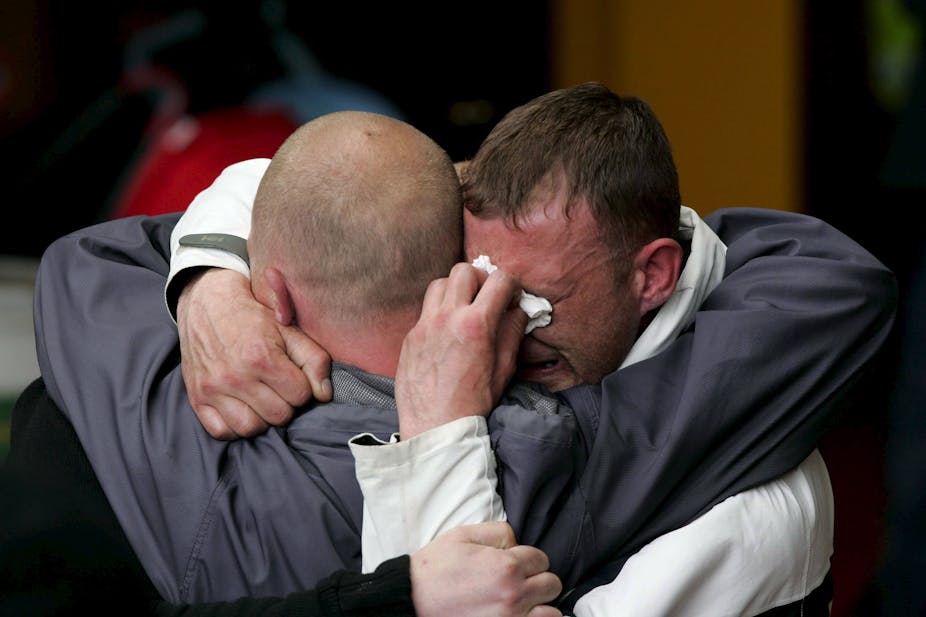The release of Hillsborough Independent Panel’s report into the death of 96 football fans at the 1989 FA Cup Semi Final between Liverpool and Nottingham Forest is not just a landmark in British history. It is also a tribute to the tenacity of their families.
Almost a quarter of a century ago, these ordinary people faced the might of a police force and Britain’s largest selling newspaper, who were both determined to blame the deaths on drunken hooliganism.
Now the official version has finally accepted that the tragedy was caused by poor crowd management and an inadequate response from the emergency services. And it is acknowledged that the pain of the bereaved was aggravated by a concerted police campaign to deflect blame from the authorities by besmirching the dead and other Liverpool fans; a campaign which found a willing ally in News International’s The Sun.

Back in 1989, then editor Kelvin MacKenzie ran an infamous front page story claiming “the truth” of Hillsborough was that rescue efforts had been thwarted by hooligans who attacked and urinated on the police as they attempted to save lives. It was even alleged that some had robbed from the dead and dying.
Yesterday, MacKenzie and the paper issued an unreserved apology. They confess to being duped by a disinformation campaign coming from the police.
On one hand, this mea culpa recognises how quickly and how well the Hillsborough families learned to play a media game. Long before tweets and facebook likes, the families, led by Trevor Hicks, who lost two daughters on that day, were taking active steps to challenge powerful misrepresentations of events. By protesting, commemorating and collaborating with investigative journalists and even renowned television dramatist Jimmy McGovern, they have kept the story-and the investigation-alive in the face of powerful interests who would rather forget.
Unfortunately, it seems their struggle isn’t over. Just hours after the report was published, newspaper reviewers on UK Sky television criticised the UK’s Daily Telegraph for choosing to lead its front page with a story about the Duchess of Cambridge.
The Telegraph hosts London Mayor Boris Johnson’s column, who is increasingly looking like the big winner from the UK’s glorious summer of sport. Johnson’s political career almost unravelled in 2004, following an editorial gaffe over Hillsborough.
As editor of The Spectator magazine, Johnson passed an opinion piece repeating the charge that the disaster was down to drunken Liverpool fans. To make matters worse, the article misreported the number of victims, and suggested that the only reason why the Hillsborough story lived on in public memory was because Liverpudlians are an inherently maudlin bunch who love to play the victim. Clearly, for all their vernacular PR skill, the Hillsborough families had not entirely dislodged the erroneous version of events established by the police and the Sun in 1989.
As sitting MP for Henley on Thames, Johnson was dispatched to Merseyside by then Conservative Leader Michael Howard to apologise for the offending article in person. Humiliating as the experience appeared to be, Johnson also managed to spin things in his favour. He explained at the time that the opinion piece was really about the need to accept personal responsibility for one’s actions; here he was, in Liverpool, doing just that.

Looking back, the episode dramatised his inchoate capacity to transform disaster into political capital. The whole world saw this skill during the Olympics, which started with endless logistical complaints, and ended with Johnson leading David Cameron in public opinion polls.
So perhaps it’s not surprising that David Cameron chose to use his public apology to the Hillsborough families to attack his new rival. Where Johnson’s stock has increased, Cameron has had to endure the ignominy of seeing his cabinet ministers roundly booed during Paralympic medal ceremonies.
The point here is that within a matter of hours, the Hillsborough report has been turned into a political football that has again placed the pain of the victims in the shade. So, once again, they must organise and act.
The whole episode is a nasty little coda to Britain’s sporting summer.
But it has also displayed the politics of media and sport with unprecedented clarity. If the Olympics was about why it’s still great to be British, the Hillsborough report is about why it isn’t. It is about a group of good people who have been deliberately let down by the institutions – including the media – who are supposed to be looking out for their interests.
Bradley Wiggins and Andy Murray can’t paper over that crack. You can bet the Hillsborough families won’t let that happen.

